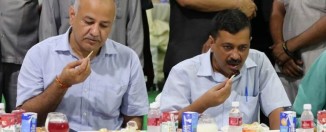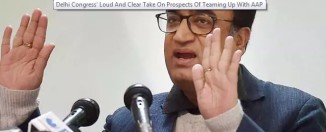Delhi High Court disposes of plea for security to Arvind Kejriwal
The Delhi High Court today disposed of a plea seeking direction to Chief Minister Arvind Kejriwal to accept security cover after the Centre submitted that it was providing him adequate protection through securitymen in plain clothes. A bench headed by Chief Justice N V Ramana disposed of the petition, which had also sought direction to the Centre to provide adequate security to Mr Kejriwal and his cabinet ministers.
During the hearing, petitioner advocate Anoop Awasthi told the court that the chief minister was no more an “Aam Aadmi (common man) but a Khas Aadmi (important man) having the responsibility of the entire state and, therefore, he needs to be protected and should take security to remain safe”.He said the Chief Minister is time and again refusing security, putting his life and that of his cabinet ministers in grave danger.
At this, the bench asked him, “Who are you? What is your interest? The person for whom you are seeking security is himself not interested. He is the Chief Minister of the State. He is aware of the consequences.” To this, the petitioner replied that, “I am a citizen of the State and interested in the well being of the Chief Minister.”
The court inquired from the Centre and Delhi Government, who were made parties in the petition, whether any security was being provided to Mr Kejriwal.
The counsel for the Centre and the Delhi Government told the court on the basis of police record, which they refrained from disclosing in open court, that they are giving “complete protection” to Kejriwal. On being asked by the bench that how the security was being provided if he does not want it, the counsel said they are giving him protection through security men in “plain clothes and otherwise”
In his plea for providing security cover to Kejriwal, Mr Awasthi had said, “No one can be permitted to expose himself for others to lethal danger because of personal, political or ideological reasons because right to life and personal liberty does not include right to jeopardise right to life and personal liberty of self and others.”





